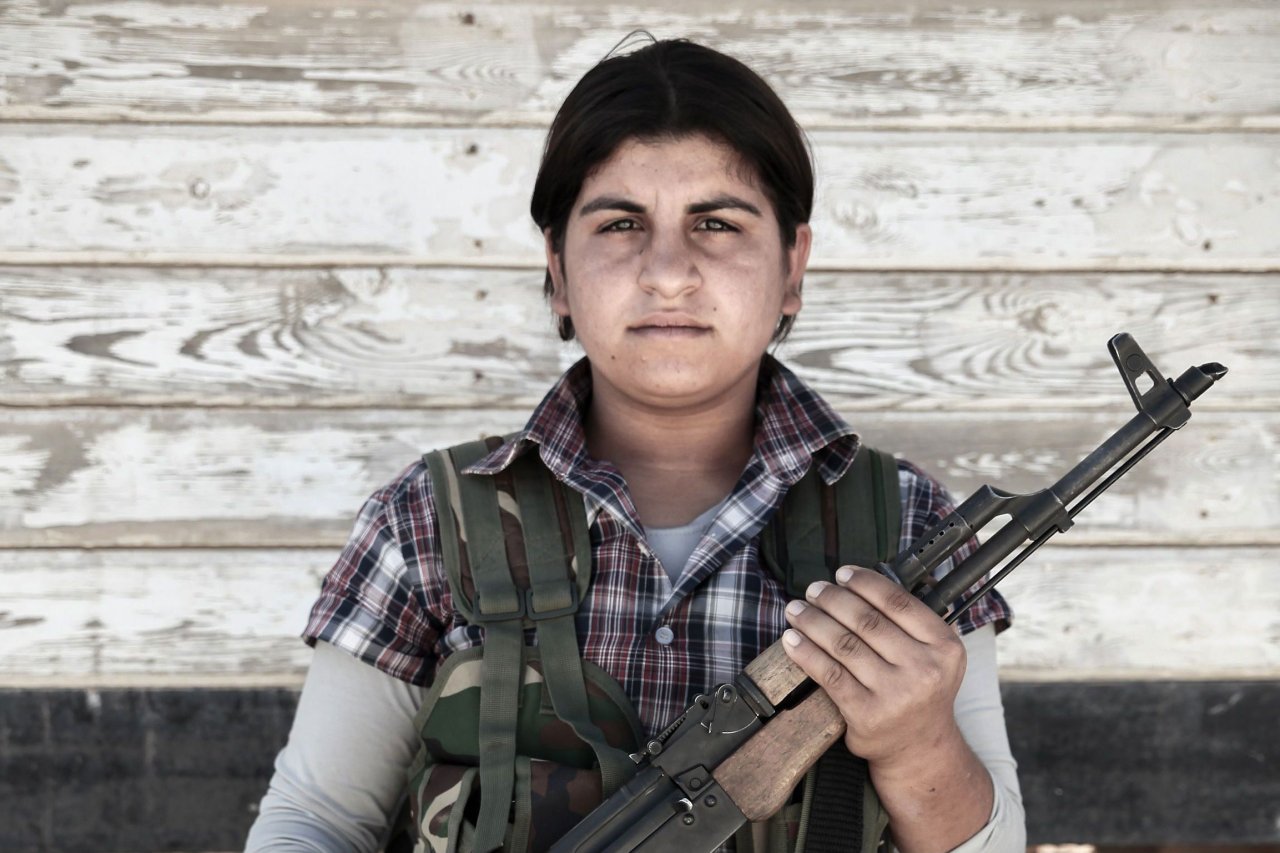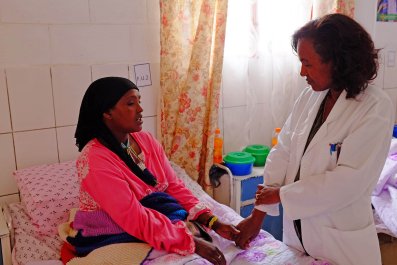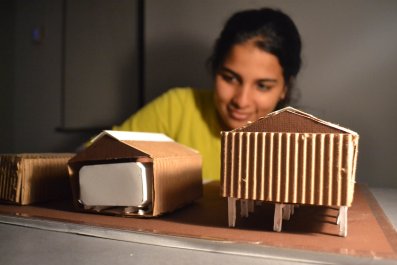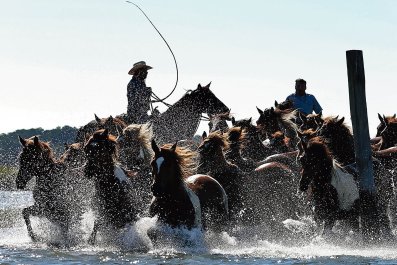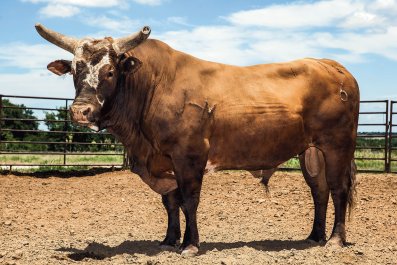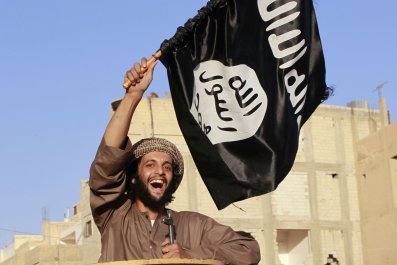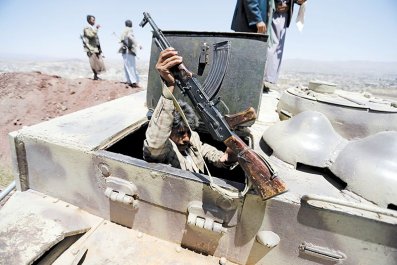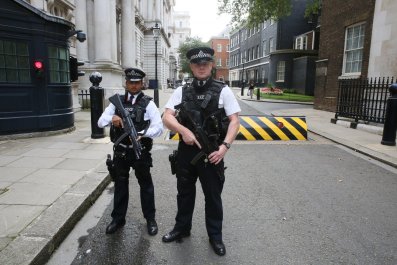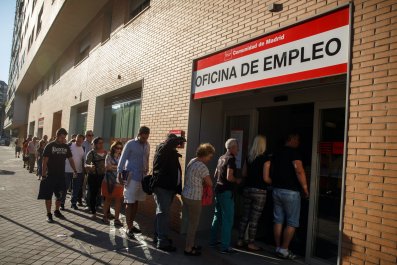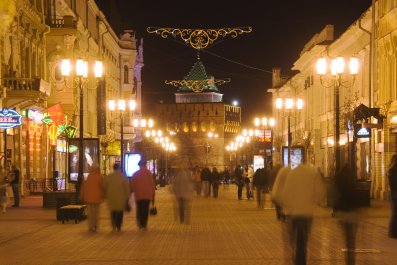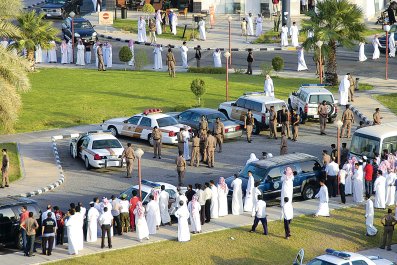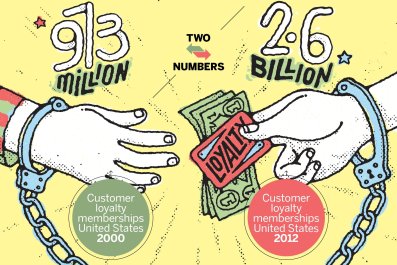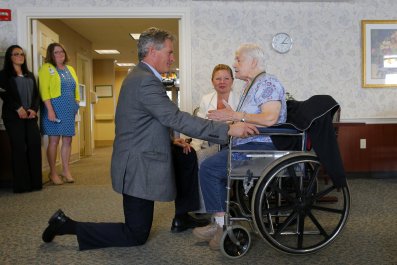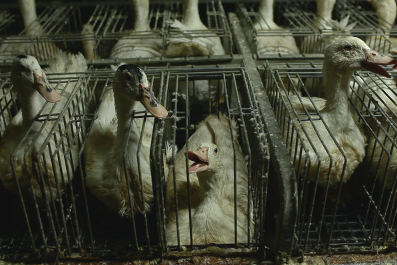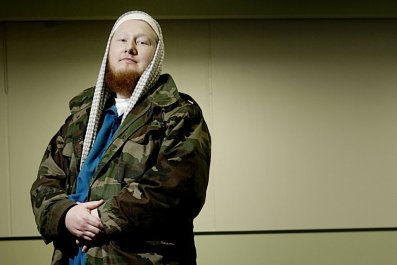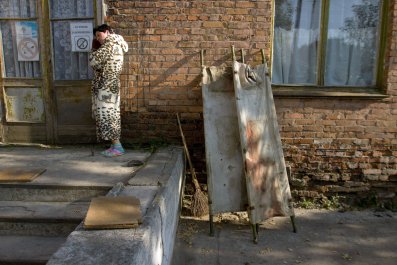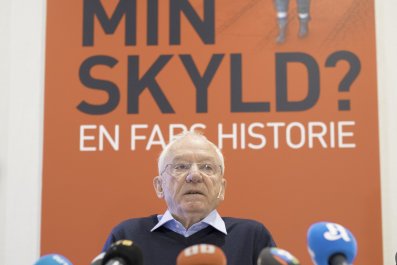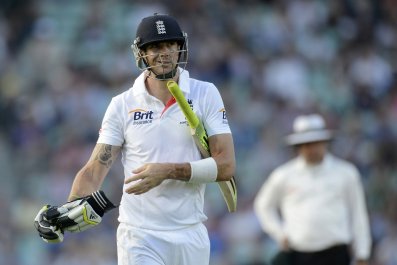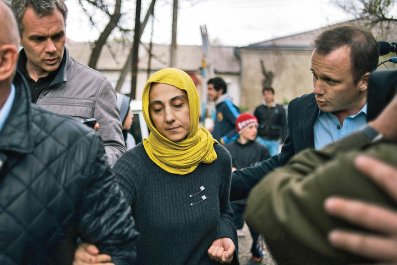I chose to stay to report about the reality on the ground and tell millions of Kurds what is really happening in Kobane, as opposed to the propaganda and lies spread by Islamic State media and several other media outlets.
My reporting is for Kurdish people to know that Kobane is alive and well because the reality is that this city is keeping up an incredible and an unprecedented resistance against continued ISIS offensives that uses every means of terror in order to carry out a genocide against the people of Kobane.
In addition to ISIS, some international media organisations have reported that Kobane has almost completely fallen into the hands of ISIS gunmen, but this is a pure lie to break the Kobane resistance. If it were true then I would not be reporting from here.
I have stayed in my city in order to counter such propaganda news spread by some outlets. Also, I want to die here with my people in my own city because abandoning Kobane is no solution. Kurds are killed everywhere, whether it is here, elsewhere in Syria or in Turkey. So, I would rather stay and I am happy to do whatever it takes to contribute to my city's resistance through my journalism.
A remarkable resistance against ISIS terror is led here by a besieged people short of food, fuel, weaponry and without adequate international support. The ISIS gunmen defeated five Iraqi army divisions in Mosul and elsewhere in Iraq in one day back in June, but Kobane has been resisting alone for almost a month now, despite it being besieged for nearly a year and cut-off from all the other Kurdish cities and towns in Syria. Kobane has already made history with this resistance and I want to be part of telling its tragic but nevertheless heroic story.
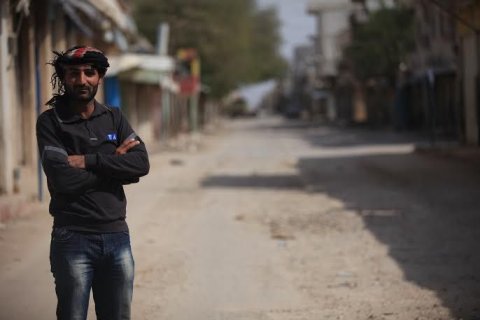
Sleeping on the Wing
Thursday October 9th. Turkey faces renewed pressure to intervene militarily in Kobane rather than watching from across the border. But the government says it is unwilling to take part unless the coalition targets Syrian President Assad's regime and sets up a no-fly zone.
Today marked the 25th day of Kobane's resistance against ongoing onslaughts by ISIS. What is happening here is extraordinary in whatever way you want look at it. Everybody is playing a role in this historic resistance against ISIS and in defence of their city, although intense fighting rages in the outskirts and within the city's inner districts, too.
Life under siege has brought people together. Everybody is a volunteer in Kobane, in order to keep up the resistance against ISIS. Doctors and nurses work for free at the makeshift hospitals; shopkeepers have emptied their shops of food, drinks and other accessories in order to distribute them for free to the fighters and civilians.
Courageous mothers whose sons and daughters are fighting on the frontline gather and cook food on a daily basis for whoever is hungry and needs food. Money is no longer worth anything because everybody wants to share their resources as well as their willpower to help one another through these hard times and continue with the resistance to save the city. It seems as if everybody belongs to one big family.
This is the solidarity on the ground that is fueling the spirit of the Kobane resistance. The young and old who are able to fight have all resorted to arms and they vow to defend the city until the end. Today, I saw Democratic Union Party (PYD) female co-leader Asiya Abdullah and Kobane canton government minister Enwer Muslim holding Kalashnikov rifles and they left in the direction of the eastern districts, where the fighting with ISIS gunmen has intensified on an unprecedented scale.
The clashes have turned into a full-scale urban guerrilla warfare in the eastern districts, where ISIS gunmen have recently infiltrated several key buildings. The street-to-street fighting has been raging non-stop in the eastern districts, especially in the industrial estate of Sina'a. Intense fighting also continues in the outskirts near the craggy hills of Mushta Nur as well as in the neighbourhood of Misher.
Ferocious street-to-street battles are taking place across the Taxa Araban district, where one foreign airstrike hit ISIS fighters today and exploded a building. In the western outskirts, the fighting continues but ISIS gunmen are not able to make any advances. An airstrike hit an ISIS position in the village of Gulmit, west of Kobane where YPG (People's Protection Units – an armed wing of the Democratic Union Party) and their female counterparts YPJ (Women's Protection Units) have managed to halt ISIS advances for several days now.
Indiscriminate shelling and bombardments of the city by ISIS gunmen have not stopped either. A bomb or a mortar round falls on Kobane's inner districts every ten minutes. The dark and white plume of the explosions coming out of the destroyed buildings entirely covers the sky.
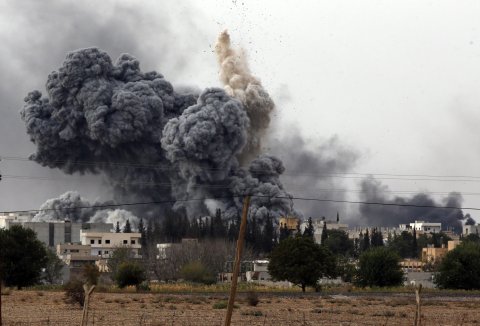
This is not a normal war because ISIS gunmen are aiming to annihilate every living being inside Kobane. You might wonder how we sleep. Well, nothing is in its normal state any longer, even sleeping patterns. People could sleep anywhere and at anytime but it is impossible to get an hour of proper sleep. The sound of gunfire, mortar rounds and explosions combined with the scenes of the destruction this war has brought to every corner of our city is just nerve-wracking. People are all outside their homes armed and all on alert to fight back against ISIS. Guard shifts no longer exist even for the armed forces because everybody walks, eats and sleeps with their rifle, grenades and pistol with them at all times.
If you want to sleep you can sleep anywhere because you know that everybody else is on alert around you. But most of the time we just pretend to sleep when we rest for a while. When I want to go inside a house to sleep, the thought suddenly enters my head of people in Kobane getting exterminated in a genocide or that a mortar or a bomb could land on my head at any moment. This prevents me from sleeping properly and I think this is the same for almost all of the people living here now.
There is no proper electricity, water, medicines – and even adequate weapons for that matter. We are short of almost everything, therefore we ration everything. One YPG fighter who came back from the eastern frontline today told me that ISIS gunmen have unlimited ammunitions therefore they sometimes fire just for fun, but YPG and YPJ fighters have to aim properly so as not to waste a single bullet.
In other words, the Kurdish fighters have to ration even their bullets and ammunitions. People have dug wells to get drinking water because ISIS long ago exploded all the pipelines that supplied the city with clean water. Generators provide us with limited electricity and people go to where the generators are situated and then queue to charge their phones. We also ration food, tea and coffee.
Some of the weapons people are using are woefully inadequate. I saw two old men today: one had a shotgun and the other had a hunting rifle. It is normal to spot tape around the Kalashnikov butts that fighters are carrying.
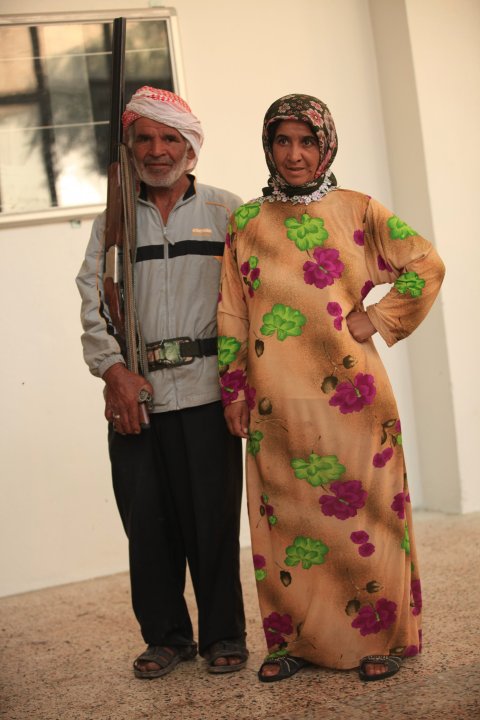
Kobane is short of medicines. All the drugs that arrive here are smuggled in by Kurds from Suruc in northern Kurdistan (Turkey). These Kurds carry medicines in backpacks and smuggle them through the border to help the resistance. Sometimes food and fuel are also smuggled in from Suruc. I was at the People's Assembly building today and met five Kurdish backpackers who had just managed to smuggle medicines safely into Kobane. They said that the Turkish border guards had opened fire on them and that they barely managed to escape alive to bring the medicines here.
Many people who bring medicines and other supplies from Turkish Kurdistan are risking their lives because the Turkish government closed the border crossings and the Turkish border guards do not hesitate to shoot Kurdish civilians. Turkish border guards also arrested 158 Kurdish civilians of Kobane today after they tried to cross the border into northern Kurdistan (Turkey). They are now held as prisoners in the border village of Ali Kur. I talked to one girl among those arrested because she still secretly has her phone and she said that the Turkish soldiers have threatened to deport them back to ISIS-controlled areas of Kobane. The soldiers have told them that they should have evacuated Kobane long ago and that they are now considered illegal smugglers because the Turkish government no longer accepts refugees from Kobane. So this was my besieged city today. It is alive still, pretty defiant in the face of all these sorts of pressures, embargoes and terror attacks coming from all sides. We'll see what tomorrow brings.
Street Battles Intensify
Friday 10th October. As US-led airstrikes continue, a Kurdish official claims that ISIS has been pushed back towards the edge of the city. In a statement, the US military confirms that the Kurds are "holding out against ISIS" .
The fierce street-to-street battles as well as the ongoing bombardments have intensified across the inner districts of Kobane today. Explosions are seen and can be heard everywhere as ISIS targets residential areas. It is escalating its attack on an unprecedented scale. The ISIS bombs and mortar rounds indiscriminately fall one after the other on the buildings of central Kobane. Today's intense bombardments signal that ISIS will soon expand more ground offensives within the city. Judging by today's heavy bombardments it seems as if the ISIS gunmen have been resupplied with many more artillery and heavy weapons to further their onslaughts.
It is also likely that more reinforcements have arrived from the nearby ISIS stronghold towns of Jarablus and Tall-Abyad to further their attacks on Kobane. Heavy fighting has been taking place near the public garden west of the city.
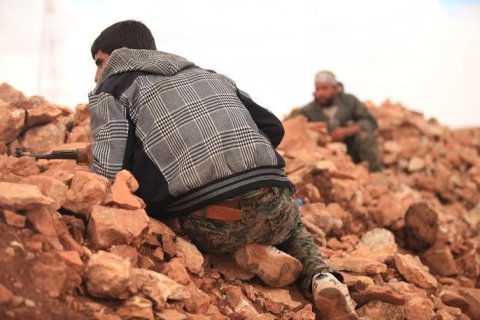
Foreign airstrikes have hit ISIS positions in Mubtal and near the Mushta Nur hills. However, the most intense street-to-street battles are happening in the southern and eastern districts of the city. Today I went to the Botan district, south of Kobane and I have never witnessed such terrifying street-to-street combat in all the years of this Syrian civil war. The clashes were altogether disturbing and very messy. It was total chaos. Heavy fighting took place all over the district while bombs consecutively landed on almost every building in the area. The YPG fighters told me to leave and return back to central Kobane because it was getting very dangerous. It was indescribably dusty in this district. Also, debris from the buildings that ISIS tanks had destroyed covered the whole area as well as the uniforms and faces of most of the Kurdish fighters.
I counted the bodies of nine dead ISIS gunmen on the ground, and one YPG fighter told me that they had killed them in an ambush earlier in the morning when the gunmen had advanced, unaware that the YPG fighters were stationed inside the demolished buildings.
I also saw two dead YPG fighters in as well as five who were badly injured. An old ambulance with shattered windows and several bullet holes on its doors came to take the injured YPG fighters away.
A Kurdish woman in civilian clothes drove the ambulance and, together with a female nurse, they moved the injured fighters to the makeshift hospitals. The district was so covered in dust and debris that I was wondering how these heroic Kurdish fighters are able to keep going amid this chaotic atmosphere.
I can't believe what my eyes are witnessing. The fighting is non-stop and the bombardments keep intensifying. I left to return to the central bazaar but then I was stuck for a while because of the street-to-street fighting around the Mustashfa Watani hospital.
The fighting was worse in this area. It was unlike anything I have seen in my life. I stood around 200m away from the hospital and mortar rounds were raining down as if they were falling from the sky. Thank God, this hospital is empty, otherwise, the mortar rounds could have resulted in mass murder of civilians. In the southern and eastern districts inside Kobane, it is not a matter of hearing crossfire or a bombardment every 5 to 10 minutes, it is ceaseless and never-ending.
The ISIS gunmen have all sorts of heavy weapons, which is why they bring so much destruction. But the Kurdish resistance militia fight back with old Kalashnikovs, homemade explosives and RPGs. This is an uneven war and the whole world knows it. Nonetheless, the morale of the Kobane resistance fighters and the people they are defending is incredible. The YPG and YPJ know why they are fighting – and who they are fighting against.
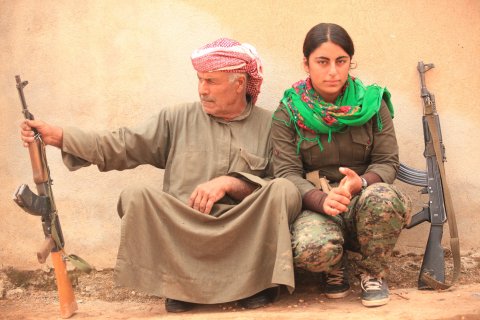
I believe that these Kurdish men and women are now fighting and sacrificing themselves for the entire world because this is a resistance to defend human values and human dignity that ISIS wants to banish from the face of the earth.
I saw a Kurdish female fighter whose right leg was patched because of her injury but she limped into the corner of the building near the Mustashfa Watani hospital to shoot at the opposing side, where ISIS gunmen were positioned. Words don't do justice to the heroic resistance and bravery put up by these women fighters.
Then I saw a couple of YPG fighters who had their shoulders patched up because of earlier injuries but they were still fighting determinedly. Fighters shout slogans to each other to boost morale on the frontline. For example, "Land or Death," is one of those slogans that I kept hearing amid the chaos in the Botan district today. The Kurdish word, "Heval" (Comrade), is what you always hear from the fighters when they direct and warn each other amid the chaotic clashes.
I managed to safely return to central Kobane but was shocked by what I had just witnessed. Then, I walked around and came across 21-year-old Dilovan Salih, a Kurdish fighter who previously worked in the local Asayish security forces.
Sali was sitting outside the Democratic Union Party (PYD) headquarters holding his gun in one hand and smoking a cigarette in the other. He appeared very sad and I had never seen him so down. He told me that he has been informed that gunmen had beheaded his 74-year-old grandfather who was a farmer and had refused to leave his home in the village of Pinar, in the outskirts of Kobane. He said his cousins and uncles are now in Turkey and they rang him to confirm the tragedy because ISIS published photos of his beheaded grandfather on the internet.
I hugged him, but then I wished I had never asked him the question in the first place because talking about it made him even sadder than he was before. But when you hear about such atrocities committed in the villages outside Kobane you realise it could happen anytime to the thousands of civilians who've remained inside the city. It's terrifying, especially when the attacks are intensifying and the bombardments are gradually closing in from all sides.
Kurdish officials and commanders have been urging all the civilians to leave Kobane for northern Kurdistan, southeastern Turkey. Around 400 civilians left today, but many others have chosen to stay, saying they would rather die here than go elsewhere as a refugee. An elderly man told me he would rather die inside his home than get arrested or killed by Turkish soldiers on the border, or live on the streets of Turkey as an abandoned refugee. There is now a risk of mass slaughter as the attacks get closer – but the resistance continues.
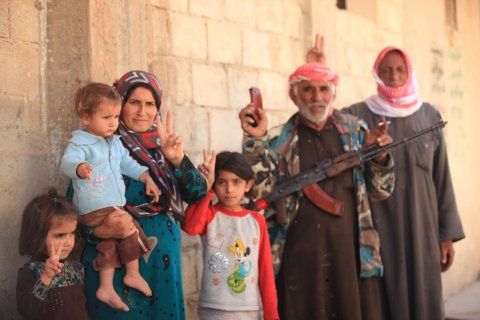
Dust Storm
Saturday 11th October. At least 553 people are reported to have died in a month of fighting in Kobane, according to the Syrian Observatory for Human Rights. The Kurds repulse a pre-dawn attack and are still in control of the town's border crossing into Turkey.
Today Kobane once again woke to the sounds of bombardments and gun fire. However, the fighting and bombardments have eased a little in the central district compared to yesterday. Warfare is mostly heard in the eastern and northeastern districts. The fighting has eased in the sense that it halts every now and then before recurring again. Perhaps this is because ISIS has suffered heavy blows and it is maybe also because there is a dust storm. This morning the buildings look like dark shadows because of the storm. I think there is not enough visibility for fighting and this has prevented further ISIS advancements.
The gunmen seem to have retreated from several positions that they held yesterday in the eastern districts; so the heavy bombardment mainly focuses on this part of the city. I saw one YPJ truck full of female fighters going to the eastern districts this morning. I asked to go with them, but a captain refused saying the fighting in the eastern districts is intense and I should stay away. I mostly remain in a house situated in central Kobane next to a makeshift hospital. We no longer have breakfast; we just have one meal a day, either late afternoon or in the evening. However, we do have coffee or tea in the mornings in a house opposite us.
I went there this morning. Some of the women and men who've stayed make the coffee and tea for everybody. You just go in and get a hot drink. Around eight people are always present there and you see different people everyday, including fighters, doctors and nurses. Civilians spend the day talking about their families who've left as refugees, the fate of the town and what could happen as the Isis offensive continues. There is a radio and everybody gathers around it when the news hour of the regional Arabic and international radios report on Kobane. Some people shout "Oh you liars" when the news says Kobane has completely fallen into ISIS hands because this is clearly not true. When the news is about advancements of Kobane resistance then some people shout, "Long live our determined boys and girls." Others shout, "Toward Victory; Kobane is Stalingrad and we will turn this city into a graveyard for ISIS rats."
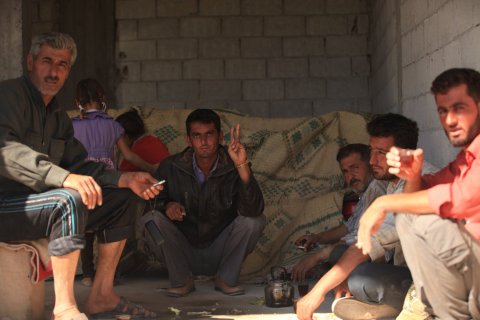
The people joke about what will happen when the fighting eases – when the women will ask the men to wash the pots. "Common, get up, guys, you are no longer entitled to your old ways of life when our women lead the fight in defence of our city."
The house where we get our tea and coffee was home to a family of six but only the father has stayed behind and he is a fighter now. This house even turns into a makeshift hospital at times because when people race to bring an injured fighter they forget that the hospital is located opposite, so they just rush and bring the injured person here. Someone usually runs to bring a nurse from the real makeshift hospital.
When I went there this morning, I saw Abu Nasih. An elderly man, he was a farmer and now he has a gun in his hands but he does not go to the frontline. He spends his days between this house and the makeshift hospital opposite, helping out with whatever is needed.
Abu Nasih is known for his jokes but today, when I said good morning to everybody they replied unenthusiastically except that Abu Nasih did not make any jokes or call me names, as he usually does. I knew something was wrong but I did not immediately ask questions.
I got my coffee and Abu Nasih rolled me a cigarette. I quietly asked what was wrong and Abu Nasih told me that ISIS gunmen have beheaded a 55-year-old Kurdish farmer called Ammar Ghirar in front of his wife and children in the village of Tall Khazal, around 16km south of Kobane. A local Arab man secretly rang to confirm the sad news.
Abu Nasih said nobody knows the fate of the man's wife because she was taken prisoner. He also saluted the courage and bravery of this farmer who has chosen to stay in his village but then said he should have evacuated it with everybody else.
We see dead and wounded people on a daily basis here in Kobane, but when a civilian is killed in such an inhuman way it makes us very sad. In the past two years the people of Kobane have opened their doors to all Syrian refugees, including Sunnis, Christians and Alewites. Kurds have helped tens of thousands of non-Kurdish refugees. Now, a massacre is looming against us but nobody seems to care. We feel lonely in this fight.
The fighting in the eastern districts was heavy this morning. I eventually managed to get there around midday because a YPG logistics car came here and the driver agreed to take me.
When we arrived there was crossfire and sniper fire-fighting but YPG and YPJ fighters seemed ecstatically happy because they had blown up a tank that came close to their positions.
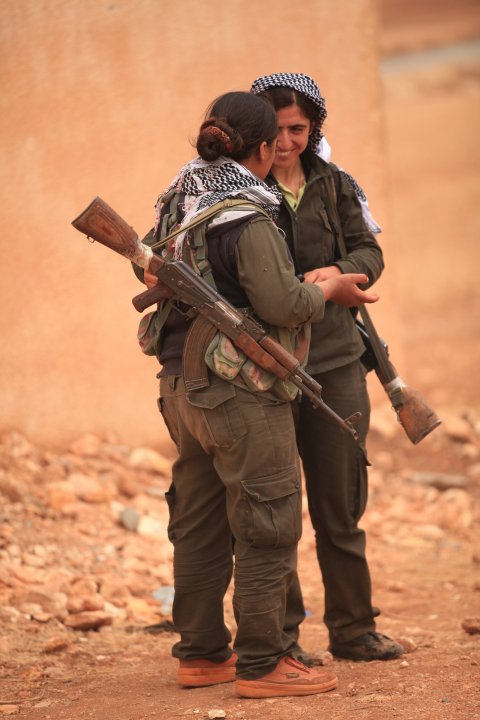
The field captain told me that they had killed around 30 ISIS gunmen in an ambush earlier in the day when the gunmen had tried to come further into the heart of this area and the Kurdish fighters had waited until they regrouped in the main street. They suddenly opened fire from all sides and killed all the ISIS gunmen. I counted 19 of them.
Taqa Tenel is where Kobane high street was located. It used to be a busy area. The shops mostly sold women's clothes and this market boomed in the late afternoons. Newlyweds, the engaged, mothers and daughters all filled the streets and shops. Now the buildings are destroyed and women's clothes, lipsticks and stuff lie abandoned amid rubble.
Suddenly a sniper shot, followed by a spray of machine gun, interrupted my thoughts. I retreated. Then a YPG captain told the logistics driver to take me back to the central district as soon a possible. Luckily, the driver said he had to first drop off food and ammunition to the Kurdish fighters nearby the Haji Rashid mosque – and so I tagged along and went to that front too.
When we got to near the mosque, we entered a half-destroyed building where 17 YPG and YPJ fighters were staying. Others were positioned in the surrounding buildings. The fighting had died out just a little and it was now a sniper firefight. Half of the Kurdish fighters were entirely covered in dust. They said the fighting had been intense this morning and some of them had gone into enemy lines and blown up two pickup trucks. Three YPG fighters were martyred in this operation behind IS lines. The logistics driver gave these fighters canned food, water, three boxes of Kalashnikov bullets, two boxes of sniper bullets and one box of grenades.
Then, we left to return to the central district. When I arrived in central Kobane around 40 fighters were getting ready to go to the northern border crossing. The crossing is situated on the edge of the northeastern district and if it is captured then all the people and fighters will be encircled inside Kobane. However, the good news is that YPG and YPJ fighters stationed near the border crossing have managed to push back consecutive ISIS offensives. ISIS gunmen then sent three suicide bombers who drove vehicles crammed with bombs to detonate themselves when reaching the Kurdish fighters. However, all three vehicles were hit from far away and destroyed completely before they reached the fighters. This broke the morale of ISIS and they retreated from the crossing. The border was saved today and so were the people inside Kobane.
One YPG fighter had a Saz instrument with him. He sang a song while the other fighters held hands to dance along. They had very high morale. Just before they left, the YPG fighter hugged me and told to remember him with this song if he does not return from the northern checkpoint.
I met with Abu Nasih again. We had a cigarette together. He seemed happy hearing the news that ISIS gunmen have not been able to move forward today but he still did not make any jokes as he usually does.
So many children
Sunday 12th October, 2014. US defence officials announced that Turkey has agreed to let American and coalition forces use its bases for operations against ISIS. Meanwhile, Kobane's deputy foreign minister said he was confident that western governments would take last-minute action to save the town.
Central Kobane is almost calm today. This morning we heard firefights, sniper shootings and occasional explosions, but they are not as constant as before. The fighting has turned into a sniper battlefield, although explosions still take place around us. In the eastern and western districts, marksmen on both sides target each other from building to building.
In central Kobane, hundreds of civilians have started to come out of their homes and bomb shelters as the afternoon approaches and bombings are occasionally heard from far off. I never imagined that so many civilians have stayed inside central Kobane. A man told me that his relatives north of the city have refused to cross the border to Turkey and that he knows hundreds of families who are still hiding inside their homes and bomb shelters. This confirms that thousands of civilians are still trapped in the city. It is hard to know exactly who is here. These civilians could be slaughtered at any moment. God forbid that ISIS advances and these civilians are still inside the city. I also saw many children today and I could not believe my eyes. It is as if they came from nowhere.
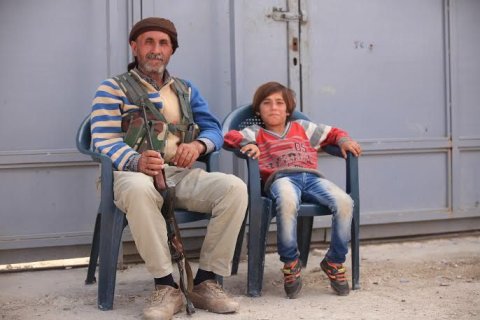
Kurdish officials had protected them in bomb shelters across the city, away from the battlegrounds. Seeing and hearing children playing was wonderful. They remain at great risk and officials are trying to convince their families to leave the city as soon as possible. In some ways I do not want them to leave us. Their presence reassures that the city is still alive despite all the deadly onslaughts. But the officials are right because this war is ferocious, ugly and the city's fate remains unknown. Generally, people gathered today to talk to each other and have a coffee or help out with whatever was needed.
Around 40 women gathered to cook potatoes and rice for everybody. The food was first given to the children, then the injured and then the women. Some of the elderly men joked saying: "In this self-rule Kurdish democracy we have established and are defending, men are being undermined because we are always the last to get our share."
Tinned food is being smuggled into Kobane from northern Kurdistan (part of Turkey) and that was distributed among the people too. Kobane officials also came around to the central district today and were all armed.
These Kurdish politicians have been taking part in the fighting against ISIS to defend Kobane, but today they seemed to protect the civilian population and guarded the children until they could take them back to the safe areas near the border crossing.
I saw Kobane canton foreign minister Ferhat Hac Issa carrying a gun on his shoulder while eating with the people. I also saw Kobane canton social minister Mahmoud Bashar with a rifle in his hands. Kobane canton deputy Prime Minister Khalid Barkal was also armed and he was among the people. People generally felt relived with the chance to get some air outside the shelters and the frontline battlefields without bombs landing nearby.
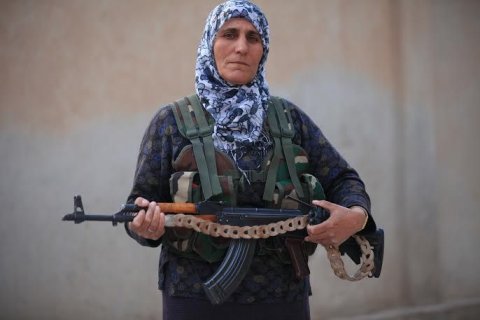
One YPJ captain held a megaphone to talk to the people about the developments in the city. She said they have pledged to fight until the end. She said if there was anything more precious than her life she would also give that to defend the people. She raised the morale of everybody. She said Kurds have culture, music and poetry therefore it is impossible to destroy us. She confirmed reports that around 100 ISIS gunmen have been captured alive by the YPG and YPJ fighters. She said it is wrong to kill war prisoners and that they will not kill them because Kurds are different from ISIS gunmen.
Hundreds of YPG and YPJ fighters later gathered in this central district today after they brought some wounded fighters to the makeshift hospitals. But they said no movement is visible elsewhere in the city because the fighting has turned mostly into sniper shootings on both sides with occasional bombardments by ISIS artillery.
I heard a female YPJ fighter singing about her mother while she was resting on the floor in the front yard of the makeshift hospital. She asked me to give her some water, but the nurse said I couldn't give her anything until a doctor sees her.
I offered her a cigarette and the nurse said 'No' again. Many of our injured fighters are smuggled into northern Kurdistan (in Turkey) for treatment if they have sustained bad injuries. Others with light injuries often return to the battlefields, even if they have not fully recovered.
No Red Cross or Red Moon exists here. The doctors and nurses are all locals and are working day and night to help the injured with very limited medicine and resources.
It is sad that while all the governments in the world have abandoned this Kobane resistance against ISIS, the "humanitarian aid organisations" have also abandoned us.
YPG snipers killed two ISIS gunmen who tried to infiltrate into this central district. They came to film as a means of propaganda to break the morale of the Kurds. But YPG snipers killed them both. One was killed while filming himself with an ISIS flag. The YPG and YPJ fighters have pledged to defend this city and the fact that they attack behind enemy lines is just incredible. It is boosting morale.
We have also heard explosions in the west of Kobane today and many people say that these are US and foreign coalition airstrikes, which have successfully targeted ISIS vehicles, but we don't know for sure.
I went to the Taqa Botan front but we had to move carefully because snipers on both sides were positioned everywhere, firing at each other. The sound of sniper shots is not like any other sound. It shocks me because you know that each shot is meant to kill.
I briefly went back to Taqa Tanel as well today and met a group of Kurdish fighters in one of the demolished buildings. The tired faces of the men and women fighters and their uniforms covered with dusts showed that they had been engaged in severe clashes.
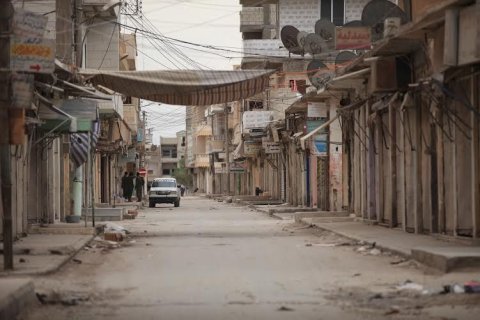
I also smelled dead bodies: it was strange and disgusting. One YPJ captain told me that ISIS gunmen do not care about their dead, so they just leave them in the battlefield. For Kurdish fighters it is very important not to leave the bodies of their fallen comrades.
Sometimes an offensive takes place just to take away the bodies, so they can eventually rest in peace after a decent funeral and burial. None the less, the fighting was so violent that some female fighters were unable to retrieve the bodies of their fallen YPJ fighters.
ISIS gunmen took the bodies of the Kurdish women fighters, mutilated their bodies and beheaded them even though they were already dead. My friends in Turkey told me that ISIS has published the photos of the mutilated bodies and the beheading online in an attempt to break the spirit of the Kurdish people and spread fear among the Kobane resistance fighters.
It won't work but the smell of dead bodies will always remain with me.
I returned to the central district at sunset and a kind women gave me some tinned tuna, but I couldn't eat it because the smell of the dead ISIS bodies. It made me feel sick. Nobody is sure what tomorrow will bring. It is either that ISIS will deploy more heavy artillery and more tanks to destroy the city or YPG and YPJ fighters will make more advancement and further push ISIS back. It is an unpredictable war and the fate of tomorrow is as enigmatic as the war itself.



